Reb MacRath's Blog, page 18
January 5, 2015
The Perfect Planner 1: Finding It
You could spend the whole month of December looking for a planner that's made for you--and fail. In fact, you could spend a lifetime pursuing the same quest in vain. The burgeoning planner industry plays to averages and numbers, rather than personal needs. In your search you will find a bewildering number of styles, designs and sizes:

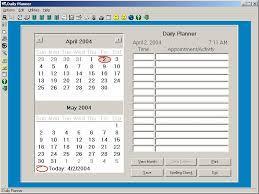
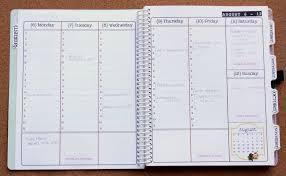

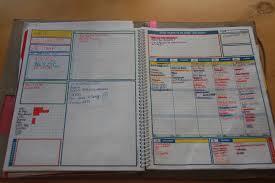
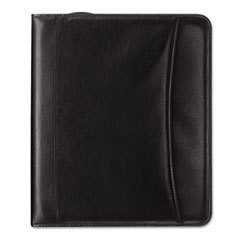
In my lifetime, I have tried almost every style, at prices ranging from a $5 to $75. The fact that I kept changing shows my dissatisfaction with the industry options I found. I kept looking for something tailored to my needs::
--I have very few formal appointments.
--I don't want a highly regimented planner like Franklin Covey (7 Habits) or DayTimer.
--I don't want to waste my time or tough on extras and accessories.
--Rather than a journal, log or appointment book, I need a planner that's in equal part: organizer, tracker, motivator and ferocious daily nag, An ongoing reminder to: Don't dream about it, do it!
The closest I came to a MacRath-style planner was a pocket-size number from Moleskine, 3"x5" for $18.
[image error]
Pros:
--Portable size.
--Design: two-page weekly spreads. Left: seven sections for daily to-do's. Right: a ruled blank page for notes, weekly overall intentions, motivational notes, etc.
--Superb Moleskine quality.
Cons:
--The too easy to lose size for a man on the go. In one month two of these fell from the pocket of my cargo pants or the side pocket of my backpack.
--Plenty of room on the right side, but not enough room in the dailies.
--Cost: I'll spend $18-$25 for a Moleskine writing notebook. But not for a third planner that wasn't made for me.
--The design fails to satisfy my unique need for a turbo-charged blend of planning, tracking and nudging.
I found the perfect planner while rummaging through Barnes and Noble.
 :
:
Piccadilly rivals Moleskine quality...at a fraction of the cost. I bought the above notebook on sale for $5.88...at least $25 cheaper than I would have paid for Moleskine.
Size: 5"x8"...still portable but not something I'm likely to lose.
Pages: 120 ruled sheets or 240 pages.
Potential: 2 days per page would last a year...with plenty of room at the back for my more stylized needs: notating monthly recharge dates of electronic devices...recording incidents at work with dates, times, detailed notes...logging a job search or ebook promotional campaign...
Strategy: the world was my oyster for those two days per page. I'd been freed. Now, unbound, I had only to decide the right--the MacRathian--way.
Colors: For those who lack the stones to tote a coral-colored notebook, you'll find other colors here:
http://tinyurl.com/mpcpbx7
Next week, in part 2, I'll tell you in detail how I transformed my Piccadilly into my own perfect planner.
Stay tuned!






In my lifetime, I have tried almost every style, at prices ranging from a $5 to $75. The fact that I kept changing shows my dissatisfaction with the industry options I found. I kept looking for something tailored to my needs::
--I have very few formal appointments.
--I don't want a highly regimented planner like Franklin Covey (7 Habits) or DayTimer.
--I don't want to waste my time or tough on extras and accessories.
--Rather than a journal, log or appointment book, I need a planner that's in equal part: organizer, tracker, motivator and ferocious daily nag, An ongoing reminder to: Don't dream about it, do it!
The closest I came to a MacRath-style planner was a pocket-size number from Moleskine, 3"x5" for $18.
[image error]
Pros:
--Portable size.
--Design: two-page weekly spreads. Left: seven sections for daily to-do's. Right: a ruled blank page for notes, weekly overall intentions, motivational notes, etc.
--Superb Moleskine quality.
Cons:
--The too easy to lose size for a man on the go. In one month two of these fell from the pocket of my cargo pants or the side pocket of my backpack.
--Plenty of room on the right side, but not enough room in the dailies.
--Cost: I'll spend $18-$25 for a Moleskine writing notebook. But not for a third planner that wasn't made for me.
--The design fails to satisfy my unique need for a turbo-charged blend of planning, tracking and nudging.
I found the perfect planner while rummaging through Barnes and Noble.
 :
:Piccadilly rivals Moleskine quality...at a fraction of the cost. I bought the above notebook on sale for $5.88...at least $25 cheaper than I would have paid for Moleskine.
Size: 5"x8"...still portable but not something I'm likely to lose.
Pages: 120 ruled sheets or 240 pages.
Potential: 2 days per page would last a year...with plenty of room at the back for my more stylized needs: notating monthly recharge dates of electronic devices...recording incidents at work with dates, times, detailed notes...logging a job search or ebook promotional campaign...
Strategy: the world was my oyster for those two days per page. I'd been freed. Now, unbound, I had only to decide the right--the MacRathian--way.
Colors: For those who lack the stones to tote a coral-colored notebook, you'll find other colors here:
http://tinyurl.com/mpcpbx7
Next week, in part 2, I'll tell you in detail how I transformed my Piccadilly into my own perfect planner.
Stay tuned!
Published on January 05, 2015 06:32
January 2, 2015
Weekly or Daily Weakly News? My New Blog Direction
Well, thanks to all of you, I've given myself a fine challenge this year: to strengthen this blog through more regular posts and to give the blog more definition. Frequency first: how could I post here more often while contributing to two other blogs monthly and working on a new novel? Correction: how could I post here more often in a way that's best for readers?
[image error]
Two posts a week should do the trick, so long as the posts score high points for usefulness, insight and pith. Far too many blogs I've seen go on for thousands of words. Who has time? A few hundred words are more like it for me--and when I read, I want those few to be as tightly edited as in a well-written novel. The blog goal that works best for me: Be brief, be blunt, be gone.
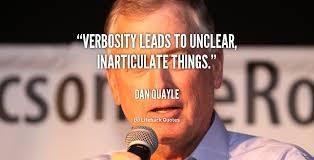
So much for frequency and length. On now to content, with you again in mind. Two posts a week about writing seems more than a little bit yawny to me. But maybe you'd enjoy a weekly split along these lines:
1) one post a week about writing and...
2) one post a week about something that strikes my fancy--or gets my goat, And there's a long list, bubbaloos, of things that do get the MacRathian goat.
I want you to know when you come to this blog that, whatever the day's menu, you'll be pleasantly filled but not stuffed...the ingredients will be fresh and lovingly prepared...and the service will never be hurried or slow.
The first proper New Year post will deal with the challenge I faced in constructing a dayplanner customized to my own needs.
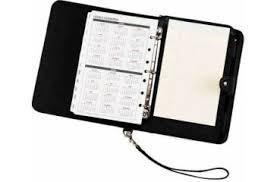
As you've guessed, that isn't mine. I came up with something that, I guess, looks like hell...but is working like a charm. And I'll tell you about it on Monday, 1/5.
Your seat will be waiting. And I think you'll like the reboot made with you in mind.
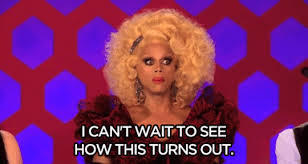
[image error]
Two posts a week should do the trick, so long as the posts score high points for usefulness, insight and pith. Far too many blogs I've seen go on for thousands of words. Who has time? A few hundred words are more like it for me--and when I read, I want those few to be as tightly edited as in a well-written novel. The blog goal that works best for me: Be brief, be blunt, be gone.

So much for frequency and length. On now to content, with you again in mind. Two posts a week about writing seems more than a little bit yawny to me. But maybe you'd enjoy a weekly split along these lines:
1) one post a week about writing and...
2) one post a week about something that strikes my fancy--or gets my goat, And there's a long list, bubbaloos, of things that do get the MacRathian goat.
I want you to know when you come to this blog that, whatever the day's menu, you'll be pleasantly filled but not stuffed...the ingredients will be fresh and lovingly prepared...and the service will never be hurried or slow.
The first proper New Year post will deal with the challenge I faced in constructing a dayplanner customized to my own needs.

As you've guessed, that isn't mine. I came up with something that, I guess, looks like hell...but is working like a charm. And I'll tell you about it on Monday, 1/5.
Your seat will be waiting. And I think you'll like the reboot made with you in mind.

Published on January 02, 2015 08:15
December 25, 2014
The Vanishing Magic of Snow: Back Again...For the First Time
If you've ever had an ugly duckling you'd meant to be a swan, then you can relate to this story.
My first ebook, The Vanishing Magic of Snow, had special importance for me:
1) After 25 years in The Desert, ignored by all agents and editors despite four published novels, it was the first all-new project I'd completed in roughly a decade. And I'd set out to prove that I still had the stuff.
2) It spearheaded my master plan to lay siege to EBookLandia with a razzle-dazzle blend of new work, rewritten versions of the work that I'd done in The Desert, and reissues of my four novels published under the name Kelley Wilde.
3) Though it's a work of fiction, TVMOS was sparked by a true life nightmare: I'd lost my job, could not find work and found myself faced with the dual threat of eviction and starvation. The first part of the novel was written in a white heat: I wanted to leave something, in case I didn't make it, to tell the world how it felt to go down without a prayer. When a miracle occurred, I continued writing: a fantasy about one man's desperate efforts to manifest his salvation through the power of positive action and thought. The theme had been on my mind since the 1970's, when I lived in Canada--and for the first time I found myself writing about my Canadian decade. Part fantasy, part thriller, part horror, TVMOS became part personal testament too.
Enough about me, though. My thoughts turned to you and my growing awareness that good writing is translation. More and more I realized that talk about Me comes to nothing--unless it is grounded in thoughts about You as a reader. No one cares--and rightly so--about Reb MacRath losing his job. So many of you have lost yours or know someone who has lost theirs. Somehow we need to translate our tales into universal terms. Where is the real terror that all of us can relate to? How can a wealthy CEO, an actress or a best-selling author relate to the tale of an old call center clerk who's made a mess of his life? The universal lingo had to be something that all of us share. And the book began to write itself the instant I thought of a premise that all of us could relate to: things in the hero's apartment begin to disappear--while he is in the apartment. The job loss is simply one more loss as his entire life begins to vanish piece by piece.
So, then, then book represented a writing milestone as well. Onward with next to no online connections, little knowledge of ebook publishing--and no needed skills to format my Word text for Amazon. And this brings us, at last, to the part of the story I wanted most to tell: I succeeded in finding a formatter for only $25. The results appeared...well, a little strange when I viewed her work on the Kindle previewer: faulty indentations and line breaks...extra spaces between words...etc. She insisted, though, that the problem lay in the previewer. The published text would be perfect.
No such luck. The published version looked a little like a tone poem. And though I acquired some five-star reviews, though nobody groused of the formatting, TVMOS became my ugly duckling I seldom talked about. The book I felt ashamed to tout.
So much for the bad news. The good news is this: my new formatter, Yvonne Betancourt, will reformat the manuscript within the next week. And I've used the last few weeks to really bring the book to life with polishing and tweaking.
Result: TVMOS will soon take its proud place among my seven other ebooks. And I'll stage a free event for as long as Amazon will allow.
My first ebook, The Vanishing Magic of Snow, had special importance for me:
1) After 25 years in The Desert, ignored by all agents and editors despite four published novels, it was the first all-new project I'd completed in roughly a decade. And I'd set out to prove that I still had the stuff.
2) It spearheaded my master plan to lay siege to EBookLandia with a razzle-dazzle blend of new work, rewritten versions of the work that I'd done in The Desert, and reissues of my four novels published under the name Kelley Wilde.
3) Though it's a work of fiction, TVMOS was sparked by a true life nightmare: I'd lost my job, could not find work and found myself faced with the dual threat of eviction and starvation. The first part of the novel was written in a white heat: I wanted to leave something, in case I didn't make it, to tell the world how it felt to go down without a prayer. When a miracle occurred, I continued writing: a fantasy about one man's desperate efforts to manifest his salvation through the power of positive action and thought. The theme had been on my mind since the 1970's, when I lived in Canada--and for the first time I found myself writing about my Canadian decade. Part fantasy, part thriller, part horror, TVMOS became part personal testament too.
Enough about me, though. My thoughts turned to you and my growing awareness that good writing is translation. More and more I realized that talk about Me comes to nothing--unless it is grounded in thoughts about You as a reader. No one cares--and rightly so--about Reb MacRath losing his job. So many of you have lost yours or know someone who has lost theirs. Somehow we need to translate our tales into universal terms. Where is the real terror that all of us can relate to? How can a wealthy CEO, an actress or a best-selling author relate to the tale of an old call center clerk who's made a mess of his life? The universal lingo had to be something that all of us share. And the book began to write itself the instant I thought of a premise that all of us could relate to: things in the hero's apartment begin to disappear--while he is in the apartment. The job loss is simply one more loss as his entire life begins to vanish piece by piece.
So, then, then book represented a writing milestone as well. Onward with next to no online connections, little knowledge of ebook publishing--and no needed skills to format my Word text for Amazon. And this brings us, at last, to the part of the story I wanted most to tell: I succeeded in finding a formatter for only $25. The results appeared...well, a little strange when I viewed her work on the Kindle previewer: faulty indentations and line breaks...extra spaces between words...etc. She insisted, though, that the problem lay in the previewer. The published text would be perfect.
No such luck. The published version looked a little like a tone poem. And though I acquired some five-star reviews, though nobody groused of the formatting, TVMOS became my ugly duckling I seldom talked about. The book I felt ashamed to tout.
So much for the bad news. The good news is this: my new formatter, Yvonne Betancourt, will reformat the manuscript within the next week. And I've used the last few weeks to really bring the book to life with polishing and tweaking.
Result: TVMOS will soon take its proud place among my seven other ebooks. And I'll stage a free event for as long as Amazon will allow.
Published on December 25, 2014 09:27
December 24, 2014
Christmas Preview
Coming tomorrow: a short, true account of how an ugly duckling succeeded at last in becoming a swan. My first ebook, The Vanishing Magic of Snow, had a lot going for it--including a beautiful cover, a story line that hit home in the Great Recession and a few glowing reviews.
But the formatting had been bungled badly. And the TVMOS became the one book I couldn't bring myself to tout,
The post will tell you of the book's reformatting and my plans for a proud giveaway event.
Stay tuned!
But the formatting had been bungled badly. And the TVMOS became the one book I couldn't bring myself to tout,
The post will tell you of the book's reformatting and my plans for a proud giveaway event.
Stay tuned!
Published on December 24, 2014 07:12
December 20, 2014
The Dreadful Clash of Symbols
So, there you are, blissfully ensconced in the new thriller you're reading. And suddenly you feel...creeped out. Yes, yes, there it is again! Once again the author has gone out of his or her way to beat you on your noggin with The Escalator. This is the seventh time in the novel that the action has come to a screeching dead stop to describe The Escalator: its history, its manufacture, the number of trips up and down every day, the ever-escalating rise of the hero's daily trips...And, worse, on the book's very cover is a graphic picture of--you bet, The Escalator, Though it has nothing to do with the action--the reason you're reading, to start with--and is never explained...still, The Escalator is established as a symbol and it gains in stature with every new appearance.
Now, this is a very old business with writers trying to gain extra mileage from tales that are usually thin. The monolith in 2001? What the hell was that about? Ask and you'll be answered by a scribe with a pipe in his mouth: It is what it is...Your private truth is in your mind...Etc., etc., etc.
To which I respond: Balderdash. And I propose a simple rule: If anything smacks of a Symbol, it should be bounced from the story. Why? Because it's attempting to carry more weight than it can actually handle. No borrowed strength should be allowed: The Escalator must also work as an escalator. The symbols that work and do not creep us out are those we perceive on our own. Fools can beat us till we're blue with Escalators and Monoliths and Whatevers. But nothing can compare with the reading magic we feel when we perceive a connection barely even hinted at.
Sayyy...Suddenly I'm thinking of that escalator scene back in the first chapter...or the monolith I briefly saw...and I'm seeing a new layer here...I don't want my noggin pounded with a silver hammer. I want to discover, as if on my own, new meanings to the story.
When in doubt, be subtle and let the readers have their joys.
Now, this is a very old business with writers trying to gain extra mileage from tales that are usually thin. The monolith in 2001? What the hell was that about? Ask and you'll be answered by a scribe with a pipe in his mouth: It is what it is...Your private truth is in your mind...Etc., etc., etc.
To which I respond: Balderdash. And I propose a simple rule: If anything smacks of a Symbol, it should be bounced from the story. Why? Because it's attempting to carry more weight than it can actually handle. No borrowed strength should be allowed: The Escalator must also work as an escalator. The symbols that work and do not creep us out are those we perceive on our own. Fools can beat us till we're blue with Escalators and Monoliths and Whatevers. But nothing can compare with the reading magic we feel when we perceive a connection barely even hinted at.
Sayyy...Suddenly I'm thinking of that escalator scene back in the first chapter...or the monolith I briefly saw...and I'm seeing a new layer here...I don't want my noggin pounded with a silver hammer. I want to discover, as if on my own, new meanings to the story.
When in doubt, be subtle and let the readers have their joys.
Published on December 20, 2014 09:15
December 16, 2014
How's it feel? The pleasure ought to be illegal
Not that I don't have anything else to do--including giving The Vanishing Magic of Snow an edit and polish before reformatting...this after launching Red Champagne--but I'd still been dogging it on beginning the next book.
Oh, the itch kept growing...and ideas kept coming...but I might as well have just sat in a bar talking the book to death with drunks.
Today, though, the itch refused to go unscratched another day. Out came the new notebook with a growl--'You lazy friggin' bastard!'--and I began the grunt work that may go on for months: taking notes, asking questions, outlining possibilities...
Reb MacRath, back in the saddle again.
The thing is to trust in the process: one question breeds another...I have been through the same cycle so many times. And yet the great challenge remains ever new: simply to trust in the process. We defeat ourselves by thinking that we need to reinvent the wheel each time.
If a wheel has worked for decades, get out of its way and, by God, let it roll.
Oh, the itch kept growing...and ideas kept coming...but I might as well have just sat in a bar talking the book to death with drunks.
Today, though, the itch refused to go unscratched another day. Out came the new notebook with a growl--'You lazy friggin' bastard!'--and I began the grunt work that may go on for months: taking notes, asking questions, outlining possibilities...
Reb MacRath, back in the saddle again.
The thing is to trust in the process: one question breeds another...I have been through the same cycle so many times. And yet the great challenge remains ever new: simply to trust in the process. We defeat ourselves by thinking that we need to reinvent the wheel each time.
If a wheel has worked for decades, get out of its way and, by God, let it roll.
Published on December 16, 2014 17:59
December 11, 2014
Why I Gave a Post I Liked a Pair of Cement Shoes
When we're active on more than one blog, we have to consider positioning. A post I'd had high hopes for--paralleling cutting our own hair with formatting our own ebooks--didn't attract many readers. Rather than tout the post through daily ReTweets--netting me 100-200 readers--I chose to analyze my 'failure' and consider where else I might place it.
Conclusions:
1) Southern Scotch, this blog, is an occasional potpourri of short or shortish posts on whatever strikes my fancy. At least half the posts have to do with the writing process or publishing industry--but not necessarily ebooks. The other half include posts on Feng Shui, film reviews, inspiration, positivity, martial arts, other writers, etc., etc., etc. So a much longer post about formatting ebooks wasn't tailored to my audience.
2) Then again, Authors Electric--the British collective blog consisting of 29 writers who all publish a post once a month--might turn out to be ideal. AE posts range in length--the ideal ranging from 1000-2000 words--but if a writer needs more room, the moderators are cool about that. The AE membership and readership share an interest in literary-minded posts. And: as the site's name suggests, the main focus is on 'electric' or digital authors. All in all, I had better chance of reaching more folks on AE.
3) My AE posts appear on the 12th of each month. This gives me a full month to Tweet and ReTweet, steadily drumming up interest. With care and correct application, I'm more likely to read hundreds of readers--maybe break a thousand--on AE than here on Scotch.
Why I changed the title:
The original title was On Cutting Your Hair and Formatting Your Own Ebook. But I had more room on AE and wanted to have more fun with it. At the same time I'd learned that even the cutest of titles had better deliver the goods--and be seen to relate pretty quickly. It might be fun to draw one other, shocking parallel: cutting your own hair...formatting your own book...and--what?
\
The new title after a few days' debate:
On Cutting Your Hair, Killing Your Spouse and Formatting Your Ebook..
I think it's found its proper home. Now I'm left to find a replacement post on this blog--since my fans don't like to wait too long between entertainments,.
Conclusions:
1) Southern Scotch, this blog, is an occasional potpourri of short or shortish posts on whatever strikes my fancy. At least half the posts have to do with the writing process or publishing industry--but not necessarily ebooks. The other half include posts on Feng Shui, film reviews, inspiration, positivity, martial arts, other writers, etc., etc., etc. So a much longer post about formatting ebooks wasn't tailored to my audience.
2) Then again, Authors Electric--the British collective blog consisting of 29 writers who all publish a post once a month--might turn out to be ideal. AE posts range in length--the ideal ranging from 1000-2000 words--but if a writer needs more room, the moderators are cool about that. The AE membership and readership share an interest in literary-minded posts. And: as the site's name suggests, the main focus is on 'electric' or digital authors. All in all, I had better chance of reaching more folks on AE.
3) My AE posts appear on the 12th of each month. This gives me a full month to Tweet and ReTweet, steadily drumming up interest. With care and correct application, I'm more likely to read hundreds of readers--maybe break a thousand--on AE than here on Scotch.
Why I changed the title:
The original title was On Cutting Your Hair and Formatting Your Own Ebook. But I had more room on AE and wanted to have more fun with it. At the same time I'd learned that even the cutest of titles had better deliver the goods--and be seen to relate pretty quickly. It might be fun to draw one other, shocking parallel: cutting your own hair...formatting your own book...and--what?
\
The new title after a few days' debate:
On Cutting Your Hair, Killing Your Spouse and Formatting Your Ebook..
I think it's found its proper home. Now I'm left to find a replacement post on this blog--since my fans don't like to wait too long between entertainments,.
Published on December 11, 2014 13:55
December 3, 2014
Four Ways of Getting a Haircut...or Formatting a Book
Let's begin with your hair, since we all love our hair but are often driven nuts by it. You have four basic choices for cutting the stuff:
1) You can cut it yourself.

2) You can go to the cheapest spot in town.
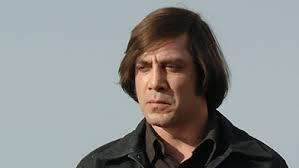
3) You can go to an old school-style barber who's mastered all the basic cuts and charges only a few dollars more.

4) You can go to a salon and pay designer prices for a more individual and expressive look.

With electric shears, you can mow your hair down to a respectable buzz cut. But for anything other than that, you really do get what you pay for. If you want something special, prepare to pay more.I don't expect much disagreement on that. But the same principles apply to formatting an ebook. Yet here's where voices start to rise.
That's strange, considering that readers can help sink a book with complaints of sloppy formatting. In fact, cheap 'production values'--sloppy formatting, editing, design--are as common as gripes of poor writing. And Amazon will unpublish a book if enough complaints weigh in. A reputation for shoddy work isn't something that's easily shaken.
Now, I know several good writers who all do their own formatting. To a man and woman, they're all technically adept. And they keep their manuscript design very clean and simple. Even so, formatting isn't as easy as these writers seem to think. Let me take that one step further: formatting isn't as easy as some formatters seem to think. And dollar price alone doesn't guarantee results.
I submit the following as proof of that, based on my experience in the last two years.
1) After paying $25 to have my first (38,000 word) ebook formatted. I was alarmed to see the text on Kindle's online previewer. There wasn't much that wasn't wrong. The formatter insisted that the text would be perfect in the published version--my previewer was to blame, she said. Still, I pointed out, the formatted Word document she'd sent back to me showed exactly the same errors. Long story short: I spent hours trying to get the formatting corrected, but whatever she changed caused new problems. End result: the published book was readable and earned some fine reviews...but it looked like free verse with the faulty indents and line breaks. It needs to be reformatted.
2) I paid $75 for a second formatter, who did my next couple of books. I learned, right off, that I'd been right: the formatted text does reflect what I will see on the previewer. The formatter did a fine job, but one that still required a good deal of fine-tuning, lots of emails back and forth. She made the changes cheerfully and quickly. The next book required even more fine-tuning. I enjoyed the salon treatment--she helped me line up some reviews and touted my work on her website. But she was determined to retire in France by age forty--and she raised her prices dramatically while becoming less accessible and flooding me with form emails offering other services. (I've since learned that she's stopped formatting altogether.)
3) The third formatter charged the same $25 as my first formatter. But her credentials looked rock solid, and I liked the way she worked: she lined up her projects a month in advance...then devoted herself to the project at hand. She did three books for me--with next to no fine-tuning. She did old school barbering at its very best. A consummate pro. Yet I had to move on again for my new book, Red Champagne, for I now needed 'extras' that #3 couldn't provide. So...on to a salon with a difference.
4) Formatting of the new novel cost me $60--and, all in all, I couldn't have made a better investment.
Red Champagne contained a slew of typographical choices I did not want to abandon. In a tricky story involving different time lines, I'd chosen several strategies for making it clear for the reader. To give you one example: I needed to isolate some sections of dialogue so that readers would know at a glance that a playwright was doing the talking. Decision: I wanted the dialogue in bold with 'stage directions' between her quips in underlined regular type. Formatter #3 had told me this wouldn't work because Amazon's automated what-nots would override the underlining--or, just as bad, underlining would like unprofessional. But formatter #4 insisted that saving the text in MOBI would prevent Amazon from overriding--and that underlining would look fine, far better than italics.. End result: for $60 I received exactly what I wanted...with a handful of glitches (all my fault) that were fixed in a matter of hours.
SUMMING UP EBOOK GOOD HAIR DAYS

1) Yes, it is true: you can format your own ebook just as you can cut your own hair. And I salute the few writers I know who do the job themselves. Even so, though, with all due respect: what is the real price in terms of the hours and energy expended? Let's say the entire process takes at least 12 hours (for a shorter novel). Are your freedom and time not worth the money it would cost you to have the job done by a pro?
2) Price is no guarantee in itself of quality. For $25 the job can be botched or look like a million. Correspond with formatters. Take a close look at their clients. And examine work they've done (easily, and freely done, if you look at Amazon's opening pages.)
3) Your odds of success at a discounted price are best if your text's style is basic: font: regular, bold and italic...none of Red Champagne's extra double spacing to set off important clues, etc....
4) Even if you need to keep the cost down at this point, keep the salon option open. What you'll want to know, going in, is if formatting is something the salon owner does on the side or if it's something s/he rightly regards as an art. Next, you'll want to know if s/he can assist in other ways. For example: I have three remaining horror novels, written as Kelley Wilde, that I'd like to issue as ebooks. Unfortunately, they were not saved on discs. I couldn't bear the thought of retyping each from scratch, as I did with The Suiting. But my new formatter, Yvonne Betancourt, has the equipment to scan the actual book, converting it to Word. And she is willing to do this at an affordable price.
So, here's to our good hair days...and perfectly formatted books.
1) You can cut it yourself.

2) You can go to the cheapest spot in town.

3) You can go to an old school-style barber who's mastered all the basic cuts and charges only a few dollars more.

4) You can go to a salon and pay designer prices for a more individual and expressive look.

With electric shears, you can mow your hair down to a respectable buzz cut. But for anything other than that, you really do get what you pay for. If you want something special, prepare to pay more.I don't expect much disagreement on that. But the same principles apply to formatting an ebook. Yet here's where voices start to rise.
That's strange, considering that readers can help sink a book with complaints of sloppy formatting. In fact, cheap 'production values'--sloppy formatting, editing, design--are as common as gripes of poor writing. And Amazon will unpublish a book if enough complaints weigh in. A reputation for shoddy work isn't something that's easily shaken.
Now, I know several good writers who all do their own formatting. To a man and woman, they're all technically adept. And they keep their manuscript design very clean and simple. Even so, formatting isn't as easy as these writers seem to think. Let me take that one step further: formatting isn't as easy as some formatters seem to think. And dollar price alone doesn't guarantee results.
I submit the following as proof of that, based on my experience in the last two years.
1) After paying $25 to have my first (38,000 word) ebook formatted. I was alarmed to see the text on Kindle's online previewer. There wasn't much that wasn't wrong. The formatter insisted that the text would be perfect in the published version--my previewer was to blame, she said. Still, I pointed out, the formatted Word document she'd sent back to me showed exactly the same errors. Long story short: I spent hours trying to get the formatting corrected, but whatever she changed caused new problems. End result: the published book was readable and earned some fine reviews...but it looked like free verse with the faulty indents and line breaks. It needs to be reformatted.
2) I paid $75 for a second formatter, who did my next couple of books. I learned, right off, that I'd been right: the formatted text does reflect what I will see on the previewer. The formatter did a fine job, but one that still required a good deal of fine-tuning, lots of emails back and forth. She made the changes cheerfully and quickly. The next book required even more fine-tuning. I enjoyed the salon treatment--she helped me line up some reviews and touted my work on her website. But she was determined to retire in France by age forty--and she raised her prices dramatically while becoming less accessible and flooding me with form emails offering other services. (I've since learned that she's stopped formatting altogether.)
3) The third formatter charged the same $25 as my first formatter. But her credentials looked rock solid, and I liked the way she worked: she lined up her projects a month in advance...then devoted herself to the project at hand. She did three books for me--with next to no fine-tuning. She did old school barbering at its very best. A consummate pro. Yet I had to move on again for my new book, Red Champagne, for I now needed 'extras' that #3 couldn't provide. So...on to a salon with a difference.
4) Formatting of the new novel cost me $60--and, all in all, I couldn't have made a better investment.
Red Champagne contained a slew of typographical choices I did not want to abandon. In a tricky story involving different time lines, I'd chosen several strategies for making it clear for the reader. To give you one example: I needed to isolate some sections of dialogue so that readers would know at a glance that a playwright was doing the talking. Decision: I wanted the dialogue in bold with 'stage directions' between her quips in underlined regular type. Formatter #3 had told me this wouldn't work because Amazon's automated what-nots would override the underlining--or, just as bad, underlining would like unprofessional. But formatter #4 insisted that saving the text in MOBI would prevent Amazon from overriding--and that underlining would look fine, far better than italics.. End result: for $60 I received exactly what I wanted...with a handful of glitches (all my fault) that were fixed in a matter of hours.
SUMMING UP EBOOK GOOD HAIR DAYS

1) Yes, it is true: you can format your own ebook just as you can cut your own hair. And I salute the few writers I know who do the job themselves. Even so, though, with all due respect: what is the real price in terms of the hours and energy expended? Let's say the entire process takes at least 12 hours (for a shorter novel). Are your freedom and time not worth the money it would cost you to have the job done by a pro?
2) Price is no guarantee in itself of quality. For $25 the job can be botched or look like a million. Correspond with formatters. Take a close look at their clients. And examine work they've done (easily, and freely done, if you look at Amazon's opening pages.)
3) Your odds of success at a discounted price are best if your text's style is basic: font: regular, bold and italic...none of Red Champagne's extra double spacing to set off important clues, etc....
4) Even if you need to keep the cost down at this point, keep the salon option open. What you'll want to know, going in, is if formatting is something the salon owner does on the side or if it's something s/he rightly regards as an art. Next, you'll want to know if s/he can assist in other ways. For example: I have three remaining horror novels, written as Kelley Wilde, that I'd like to issue as ebooks. Unfortunately, they were not saved on discs. I couldn't bear the thought of retyping each from scratch, as I did with The Suiting. But my new formatter, Yvonne Betancourt, has the equipment to scan the actual book, converting it to Word. And she is willing to do this at an affordable price.
So, here's to our good hair days...and perfectly formatted books.
Published on December 03, 2014 16:53
December 1, 2014
Coming 12/3: New Post About Publishing Ebooks
Though it's been a while between shots of Scotch, the next one should prove worth the wait. I'm culling my experience from working with four different ebook formatters into a summary called:
Four Ways of Getting a Haircut...or Formatting a Book.
We'll also discuss designing our own covers as another form of self-cut hair.
See you here on Wednesday.
Four Ways of Getting a Haircut...or Formatting a Book.
We'll also discuss designing our own covers as another form of self-cut hair.
See you here on Wednesday.
Published on December 01, 2014 06:16
November 23, 2014
Three Ways to Begin Almost Anything...Plus One
[image error]
Those are the big 3 components of most start-up plans, whether we're starting a business or beginning a new book. I agree, but in my case I do need one more:

A small itch, to start...then the son of an itch...All the rest amount to nothing till I have that inner itch. I can nurse Ideas and play with Plans until the cows come home. But it won't make a damned bit of difference. I need the itch to get in gear. And the itch is the one thing that cannot be forced.
The itch manifests in several ways: the desire to find a new notebook, something a little bit different this time, in which to lay the groundwork...scheduling possibilities for writing daily while I work...a growing need to spend time with my characters...more and more questions about them...
This is quite different, for me, than sitting one day like a calm, controlling pro. As the itch progresses, in fact, I grow more and more controlled until I really can't resist scratching the itch as I must.
So yesterday I found the just-perfect notebook for the new Boss MacTavin mystery. I passed a slew of Moleskines to snatch a 9x12 stiff-covered, 80 sheet Cambridge notebook. What grabbed me was the 2" bordered column on the outside of each page. I could make special notes there, memos to myself, etc.
Within the next few days, after I've finished preparing Red Champagne for its December launch, I'll begin to scratch with pages of questions and notes...which, I'll know from memory, will quickly multiply. Questions breed questions and notes breed more notes. And this could be a dangerous thing--as the wannabe writers in bars will tell you between beers--if the scratching didn't generate an even fiercer itch one day:
To try out some opening sentences. No plan to really start writing--not yet! But one of those opening sentences will lead us to try out a second...then a third...
And then we're lost as well as found. We're into perpetual scratch mode...and loving every second...as our confidence grows while the happy itch goes wild.
What the hell. At least we're not suffering from this dread affliction:
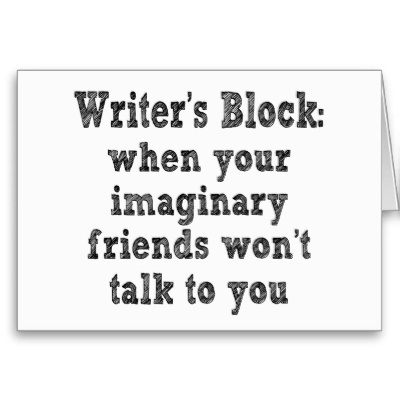
Those are the big 3 components of most start-up plans, whether we're starting a business or beginning a new book. I agree, but in my case I do need one more:

A small itch, to start...then the son of an itch...All the rest amount to nothing till I have that inner itch. I can nurse Ideas and play with Plans until the cows come home. But it won't make a damned bit of difference. I need the itch to get in gear. And the itch is the one thing that cannot be forced.
The itch manifests in several ways: the desire to find a new notebook, something a little bit different this time, in which to lay the groundwork...scheduling possibilities for writing daily while I work...a growing need to spend time with my characters...more and more questions about them...
This is quite different, for me, than sitting one day like a calm, controlling pro. As the itch progresses, in fact, I grow more and more controlled until I really can't resist scratching the itch as I must.
So yesterday I found the just-perfect notebook for the new Boss MacTavin mystery. I passed a slew of Moleskines to snatch a 9x12 stiff-covered, 80 sheet Cambridge notebook. What grabbed me was the 2" bordered column on the outside of each page. I could make special notes there, memos to myself, etc.
Within the next few days, after I've finished preparing Red Champagne for its December launch, I'll begin to scratch with pages of questions and notes...which, I'll know from memory, will quickly multiply. Questions breed questions and notes breed more notes. And this could be a dangerous thing--as the wannabe writers in bars will tell you between beers--if the scratching didn't generate an even fiercer itch one day:
To try out some opening sentences. No plan to really start writing--not yet! But one of those opening sentences will lead us to try out a second...then a third...
And then we're lost as well as found. We're into perpetual scratch mode...and loving every second...as our confidence grows while the happy itch goes wild.
What the hell. At least we're not suffering from this dread affliction:

Published on November 23, 2014 09:45



